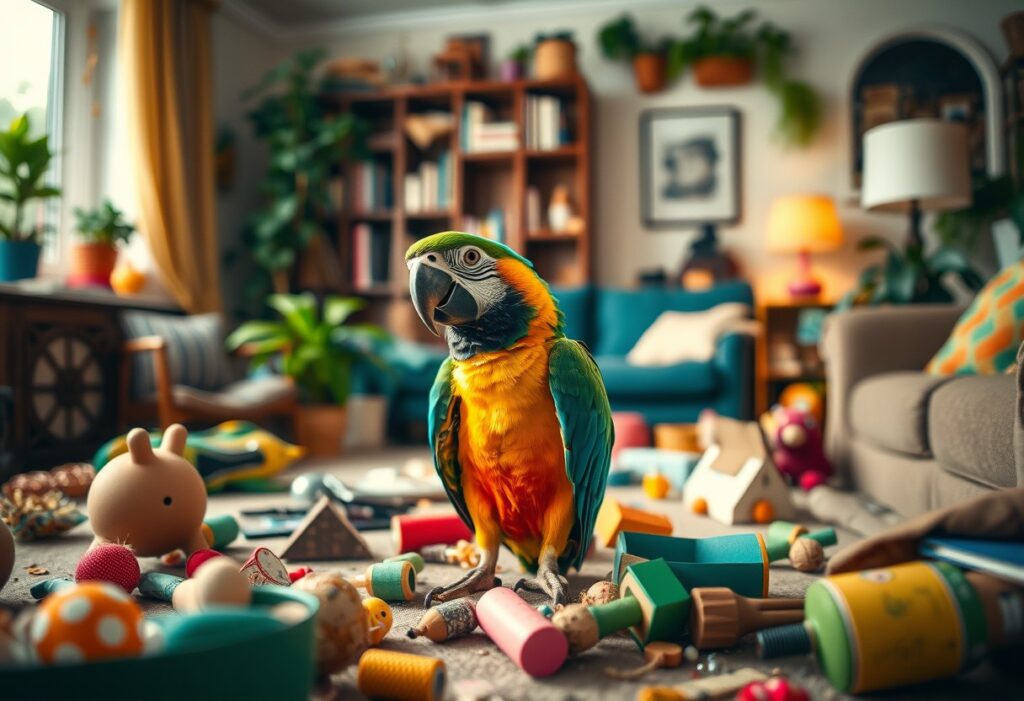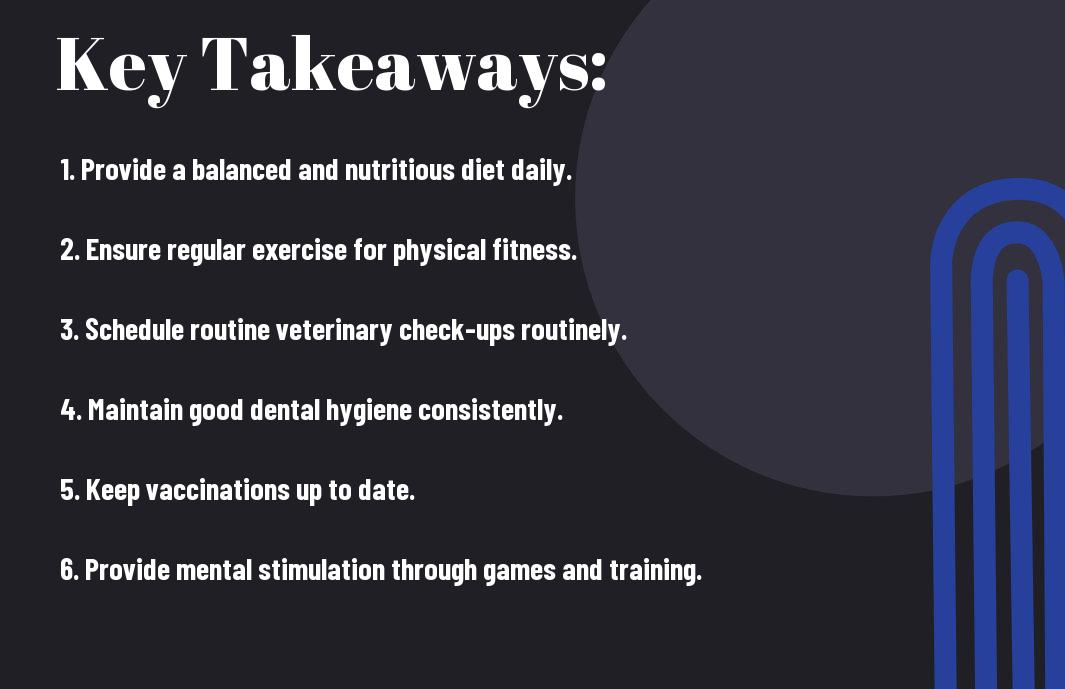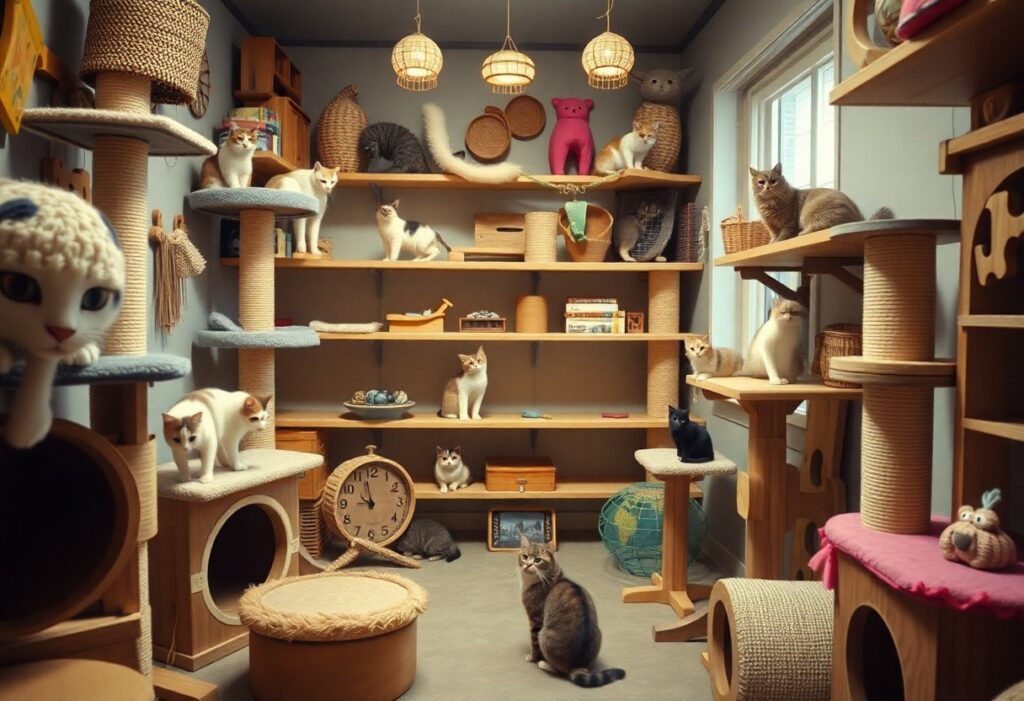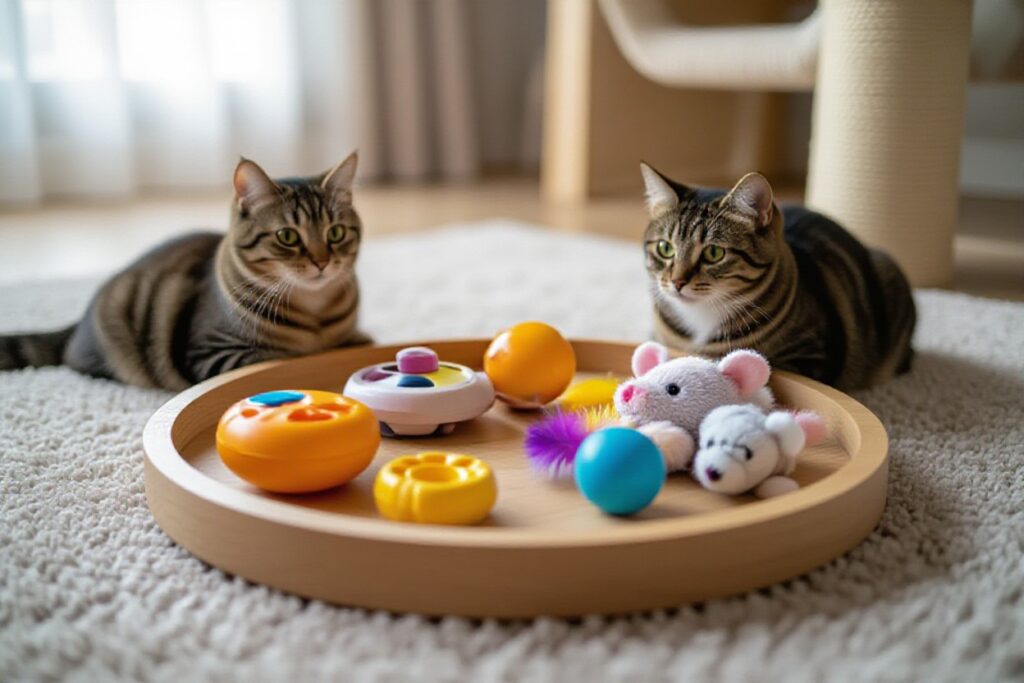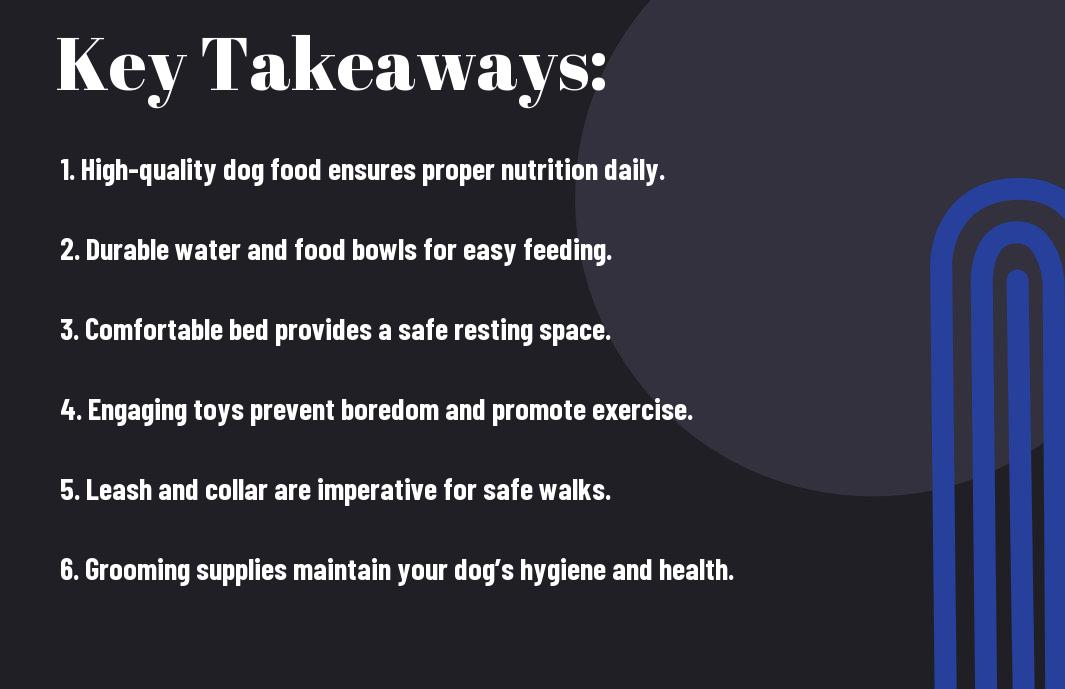Most bird owners experience the frustration of seeing their feathery companions chewing everything in sight. You may wonder why your pet engages in this destructive behavior, and understanding the reasons behind it can aid in addressing your concerns. Birds have a natural instinct to chew as it helps them maintain their beaks, relieve boredom, and explore their environment. By delving into their motivations, you can create a more enriched environment for your bird, reducing unwanted chewing and ensuring their happiness and well-being.
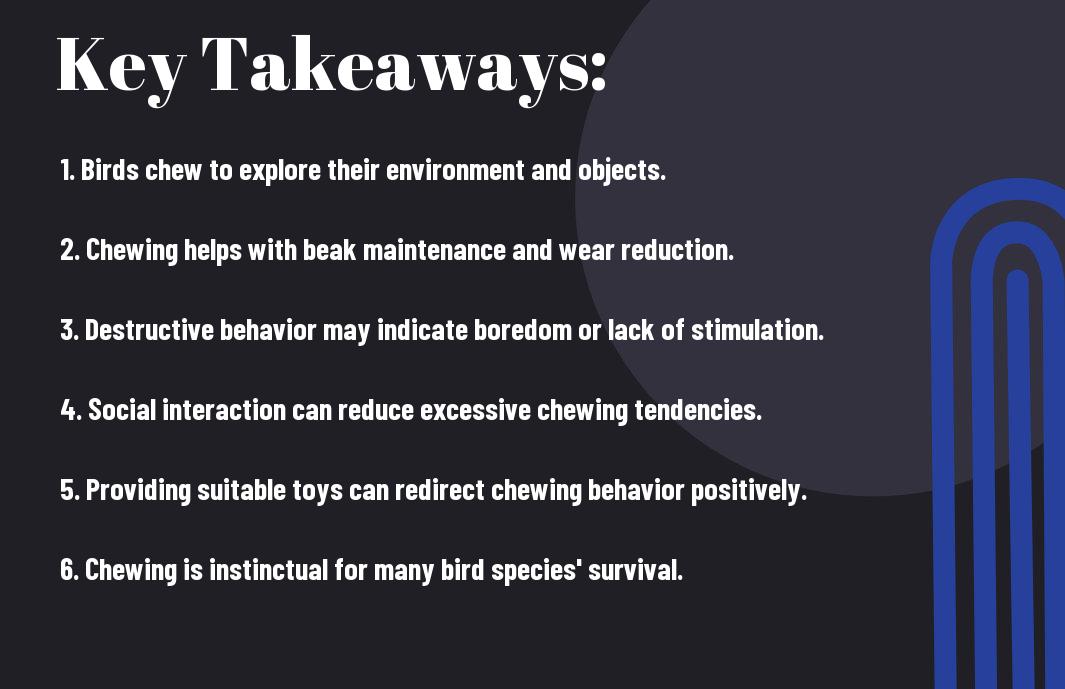
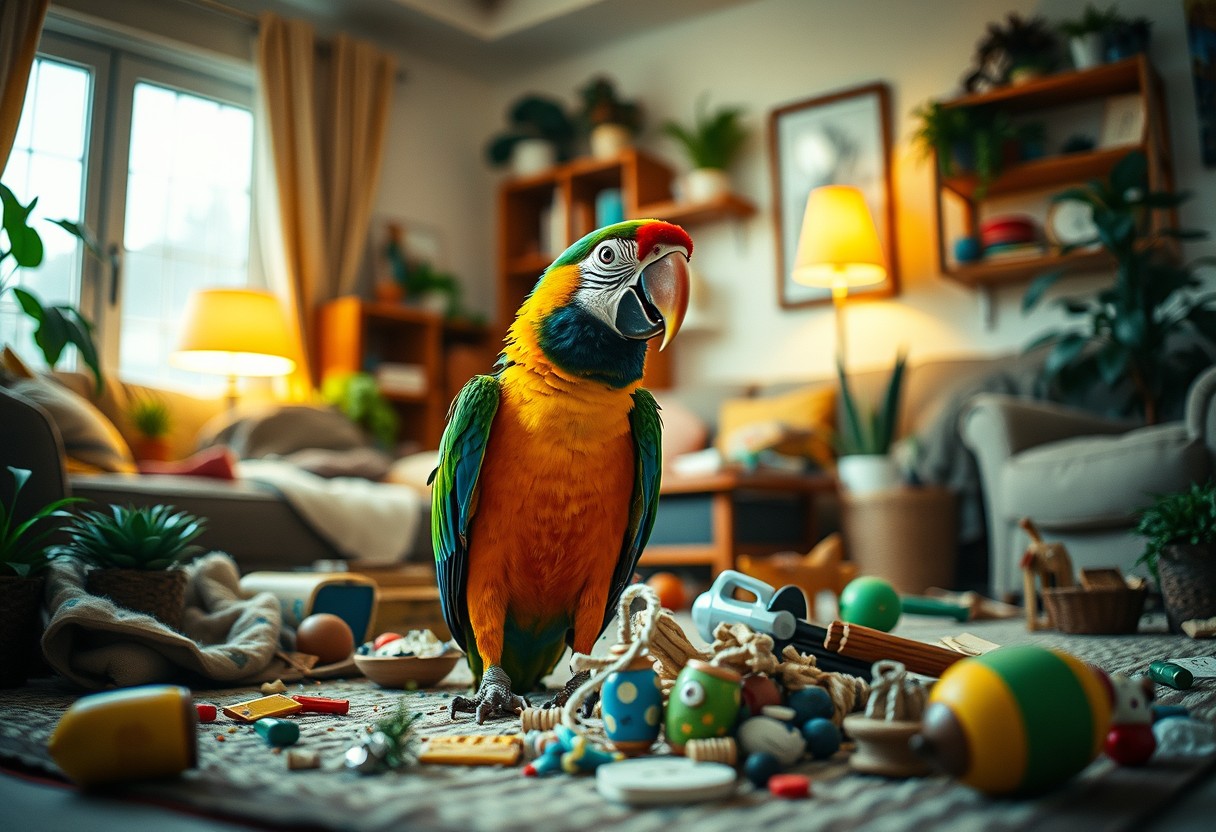
Understanding Bird Behavior
To comprehend why birds exhibit destructive chewing behaviors, it’s necessary to understand their natural instincts. Birds are naturally equipped with strong beaks, which evolved for a range of purposes, including feeding, grooming, and even self-defense. Your feathered friend might chew on various objects in their environment as a way to maintain their beak’s shape and health. In the wild, birds often need to gnaw on tougher materials to keep their beaks trimmed and functional, as they may encounter harder seeds or nuts that require substantial effort to crack open. By understanding this, you can see how this natural instinct translates to your home as they use their beaks to explore their surroundings.
To further illustrate, consider that chewing can also serve to relieve stress among birds. They are social creatures that thrive on interaction and stimulation; without adequate mental and physical engagement, they may resort to destructive behaviors to express their boredom or anxiety. This is particularly true for young birds, who are still learning about their environment and how to navigate it. Recognizing this can aid you in providing a more enriching environment to minimize their need to chew on your household items.
Exploration and Curiosity
On another note, birds are inherently curious creatures. They have a natural tendency to explore their surroundings, often using their beaks to investigate objects that catch their attention. This behavior is not merely about destructiveness; it’s a vital part of how they learn and familiarize themselves with the world around them. Your bird’s curiosity drives them to engage in this chewing behavior as a means of exploring textures, tastes, and sounds, turning everyday objects into exciting avenues for discovery.
A significant detail to keep in mind is that while chewing and exploring are normal behaviors for birds, some items can pose a serious risk to their health. Common household items such as electrical cords, toxic plants, or small objects that can be swallowed can be highly dangerous. Therefore, providing suitable alternatives—like chew toys made of safe materials—can keep your bird engaged and protect them from potential hazards. Additionally, regularly interacting with your bird can satisfy their curiosity while reducing the likelihood of them chewing on unintended objects.
Reasons Behind Destructive Chewing
Some birds are notorious chewers, often reducing household items to splinters with their persistent nibbling. Understanding the reasons behind this destructive behavior can help you manage and redirect your pet’s chewing tendencies in a more productive manner. Birds don’t engage in destructive chewing without cause; there are several underlying factors that contribute to their urge to chew everything in sight.
Beak Maintenance
The first significant reason behind your bird’s chewing behavior is beak maintenance. In the wild, birds naturally wear down their beaks through activities like chewing on branches, seeds, and other natural materials. Your bird, especially those kept in captivity, has an instinctual need to engage in this behavior to ensure that their beak remains a healthy size and shape. If you notice your bird chewing on furniture or toys, it may simply be trying to fulfill this vital grooming instinct.
Furthermore, an unkempt beak can lead to health problems, so it’s important for you to provide your feathered friend with plenty of appropriate objects to chew on. Wooden toys, cuttlebones, and natural branches can help keep your bird’s beak in optimal condition while preventing it from targeting your personal belongings.
Stress and Anxiety
Stress can also lead to increased chewing behaviors in birds, particularly if they feel threatened or uncomfortable in their environment. Changes in their surroundings, such as moving to a new home, introducing new pets, or even changes in your routine, can trigger anxiety. This emotional distress can manifest in destructive chewing as your bird tries to cope with their feelings of unease.
It’s crucial for you to monitor your bird’s emotional state and provide a consistent, safe environment. Techniques such as enriching their habitat with safe toys and offering regular social interaction can mitigate stress and help reduce their urge to chew destructively.
Maintenance of a stable and secure environment is key in managing stress-related chewing behavior. When birds feel secure and less anxious, they are less likely to direct their energies into destructive behaviors.
Boredom and Lack of Stimulation
Lack of stimulation is another common reason why your bird might be inclined to chew everything around them. In captivity, birds often face a lack of environmental enrichment and interaction, leading to boredom. If left unattended, your feathered friend may resort to chewing on furniture, wires, or other inappropriate things in an attempt to entertain themselves.
To combat boredom, consider providing a variety of toys, puzzles, and socialization opportunities. Rotate their toys regularly to keep their playtime fresh and engaging; this can significantly decrease the likelihood of destructive chewing.
For instance, incorporating items like shredded paper, climbing structures, and food enrichment activities can stimulate your bird’s mind and curb their desire to chew on undesirable items.
Social Interaction
Anxiety can also occur if your bird feels they lack proper social interaction, which can lead to destructive chewing. Birds are social creatures who thrive on interaction, whether it be with humans or other birds. If they are left alone for extended periods, they may start to chew destructively out of frustration.
It’s important for you to provide ample social interaction, whether through playtime, talking, or simply being near your bird. This social engagement can alleviate feelings of loneliness and reduce the frequency of destructive chewing behaviors.
Boredom and a lack of social interaction are significant elements that drive your bird’s chewing habits. To foster a happier, healthier pet, make sure to spend quality time with your feathered friend and provide stimulating activities to keep their minds engaged.
Impact on Bird Health
Many bird owners may not realize the potential health risks associated with their pets’ chewing behaviors. While you might think this is just a harmless habit, it can lead to various physical consequences if left unaddressed. Birds are naturally inclined to chew, and when they do, they may inadvertently ingest materials that can be detrimental to their health.
Physical Consequences
Birds that engage in excessive chewing can be at risk for various physical ailments. For instance, if your bird swallows non-food items or sharp objects, it can result in obstructions or injuries within its digestive system. Such situations can lead to pain, discomfort, and potentially life-threatening conditions that require urgent veterinary care. Additionally, consistent chewing can cause wear and tear on their beaks, leading to malformations or infection, which can complicate feeding and grooming.
Furthermore, some materials that birds might chew on can be toxic. For example, wooden toys that are painted with harmful substances or plastics treated with chemicals can pose serious health risks. Your bird’s overall well-being can deteriorate significantly if you do not monitor their chewing habits closely, emphasizing the need for bird-safe materials in their environment.
Behavioral Issues
Consequences of excessive chewing behavior extend beyond physical health; they can also lead to behavioral issues. If you notice that your bird consistently chews on inappropriate items, it could indicate underlying stress, boredom, or anxiety. Birds are intelligent creatures that require stimulation, and when their needs are not met, they may resort to destructive behaviors as a means of coping or releasing pent-up energy.
Understanding the root causes behind your bird’s chewing can help you provide better care. By identifying triggers and modifying the environment, you can alleviate the need for destructive chewing. Incorporating enrichment activities, such as interactive toys or puzzle feeders, can keep your bird engaged and reduce the likelihood of unwanted chewing. Do not forget, it is crucial to create a safe and stimulating space for your feathered friend to thrive.
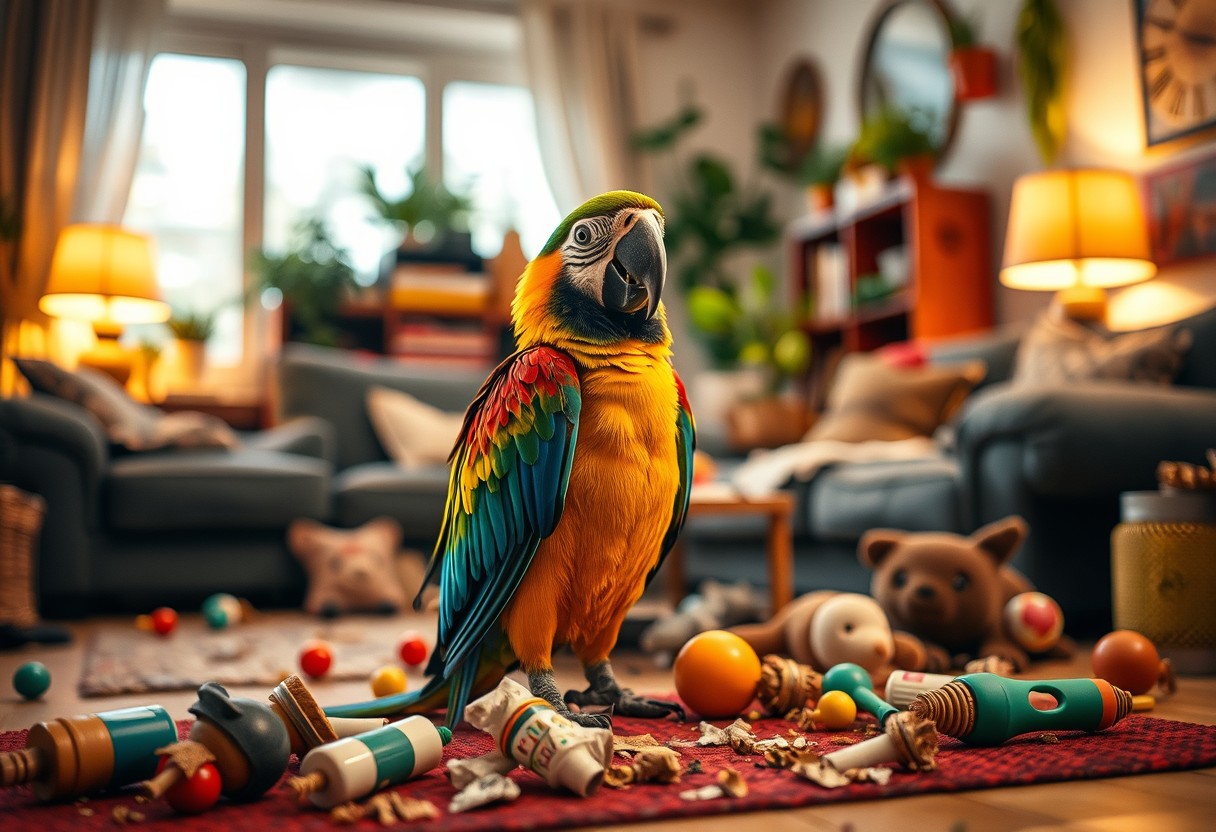
Managing Destructive Behavior
Unlike many pet species, birds have a natural tendency to chew and explore their surroundings. This behavior can lead to destructive acts if not managed properly. It’s crucial to understand that this is not merely a sign of unwanted behavior but an expression of their instincts and natural playfulness. By taking proactive steps to manage their destructive tendencies, you can help ensure a harmonious environment for both you and your feathered friend.
Providing Appropriate Toys
For many bird owners, the solution to destructive chewing lies in providing an array of appropriate toys. Toys designed specifically for birds stimulate their natural instincts and redirect their chewing tendencies. Offering a variety of shapes, sizes, and textures can engage their attention and keep them occupied for hours. Make sure to choose toys that are made from non-toxic materials, as safety should always be a priority.
Additionally, rotating the toys frequently helps to maintain your bird’s interest and encourages them to explore different textures and challenges. Look for toys that involve problem-solving skills, such as those that require your bird to unscrew or maneuver parts to access hidden treats. This not only answers their chewing needs but also promotes physical exercise and mental stimulation.
Enrichment Activities
The key to managing your bird’s destructive behavior lies significantly in providing enrichment activities. Birds are intelligent creatures craving mental stimulation and physical challenges. Incorporating a mix of activities, from foraging to interactive play sessions, can significantly reduce their desire to chew on undesirable objects in your home.
With techniques like hiding treats around their play area or using foraging toys, you can encourage your bird to work for their food. This taps into their natural instinct to search for sustenance and keeps them engaged. You can also create puzzles using cardboard, paper bags, and shredded newspaper, which allow your bird to engage in natural shredding behavior without causing damage to your belongings.
Behavioral Training
The importance of behavioral training cannot be overstated when it comes to managing your bird’s chewing habits. Training techniques should focus on positive reinforcement, encouraging desirable behavior while discouraging chewing on inappropriate items. You can start by redirecting your bird to their toys immediately when you notice them engaging in destructive behavior.
Providing consistencies in training schedules and rewarding your bird with praise or treats when they interact with the right items reinforces positive habits. Implementing firm yet gentle commands can help your bird understand the boundaries of acceptable chewing. Keep in mind, patience is key; behaviors won’t change overnight, but consistency will yield positive results over time.
Conclusion
Ultimately, understanding why birds chew everything is crucial for their well-being as well as the preservation of your belongings. Birds are naturally curious creatures, and their instinct to explore their environment through chewing serves several purposes, including the maintenance of their beaks, relieving boredom, and satisfying their instinctual need to forage. By recognizing these behaviors, you can create a more enriching environment for your feathered friends while minimizing destructive tendencies. Providing appropriate toys, engaging activities, and stimulating surroundings can redirect their chewing instincts into healthier outlets, ensuring both your peace of mind and their happiness.
As you navigate the challenges of having a bird as a pet, remember that understanding their needs and motivations is key. The more informed you are about their behaviors, the better equipped you will be to address any destructive tendencies. Your commitment to providing an enriching habitat can transform your experience and foster a positive relationship with your bird, ultimately leading to a harmonious living situation where both you and your pet thrive in a supportive and engaging environment.
Q: Why do birds chew on objects like furniture or wires?
A: Birds have a natural instinct to chew, which is rooted in their evolutionary behavior. Chewing helps them maintain their beaks’ health, stimulating the growth of new beak material. Additionally, birds are curious creatures; they explore their environment using their beaks. This exploratory behavior can lead them to chew on anything that captures their interest, including furniture, wires, and other household objects. To prevent this destructive behavior, it’s vital to provide birds with appropriate chew toys and ensure they have a stimulating environment that satisfies their curiosity.
Q: How can I prevent my bird from chewing on inappropriate items?
A: To redirect your bird’s chewing habits towards appropriate items, start by providing a variety of safe and engaging chew toys made from bird-safe materials. Rotate these toys regularly to keep your bird interested. Additionally, consider making the environment more engaging by introducing climbing structures, foraging activities, and interactive toys that pique their curiosity without posing a risk to household items. Close supervision can also help prevent unwanted chewing, allowing you to step in and redirect their attention when necessary.
Q: Is excessive chewing a sign of stress in birds?
A: Yes, excessive chewing can indeed be a sign of stress or boredom in birds. If a bird is not given enough mental and physical stimulation, it may resort to destructive behaviors as an outlet for their frustration. Signs of stress in birds may include excessive chewing, pacing, screaming, or feather plucking. To alleviate stress, ensure your bird has a rich environment filled with toys, social interaction, and opportunities for physical exercise. If the problem persists, consider consulting an avian veterinarian or a bird behaviorist for further advice.
